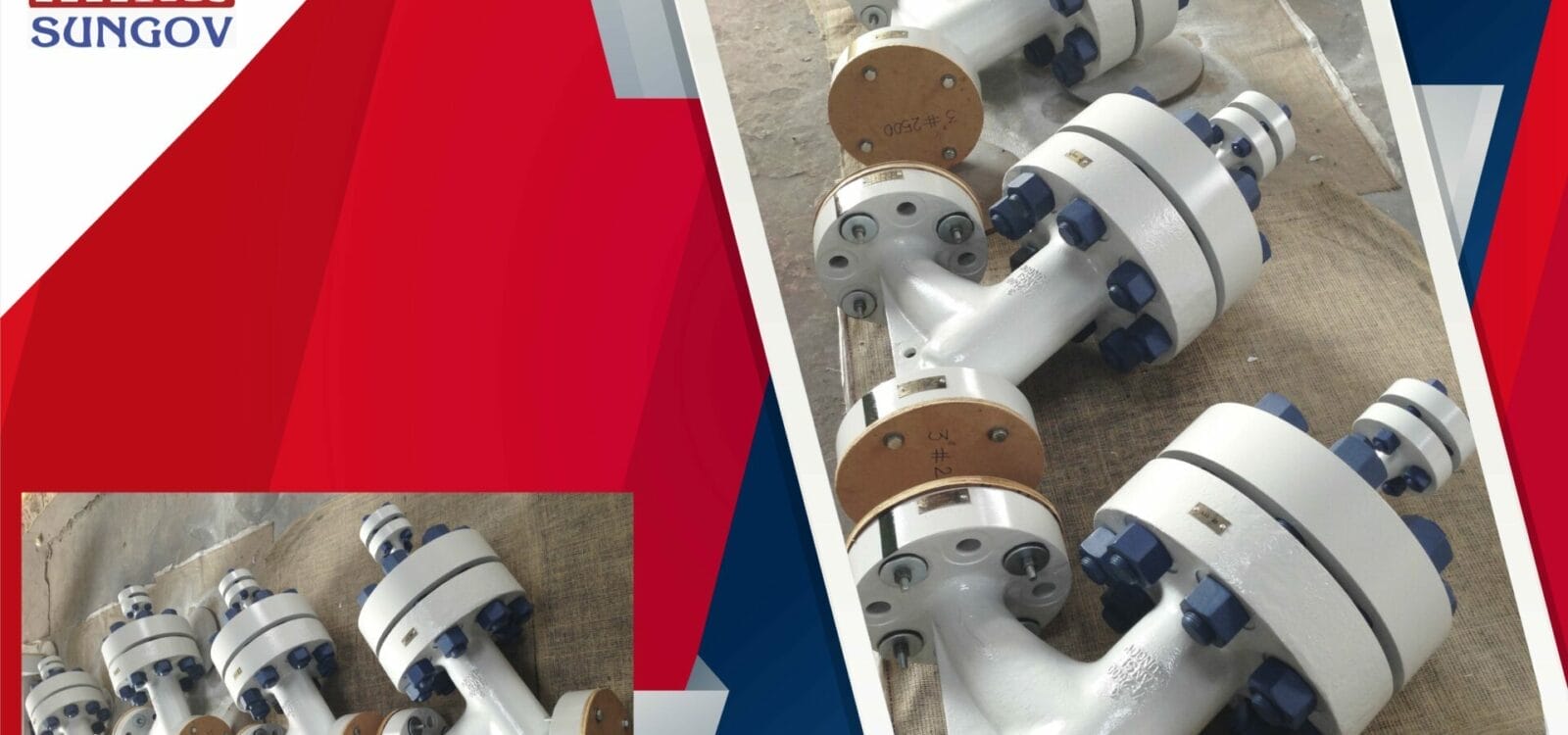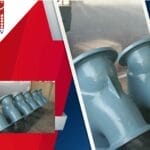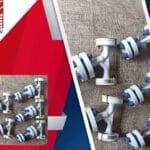What are industrial strainers and the importance of filtration in manufacturing?
Industrial strainers serve as crucial filtration devices and are responsible for playing an important part in manufacturing processes. They are designed to remove unwanted impurities from liquids and gases. Specifically engineered to capture particles, debris, and contaminants, these strainers prevent unwanted particles from entering sensitive equipment and machinery.
In essence, industrial strainers act as the first line of defense in ensuring the quality and integrity of the manufacturing process. Filtration is of paramount importance in manufacturing because it directly influences product quality, equipment longevity, and operational efficiency. By removing solid particles and impurities, industrial strainers not only enhance the purity of the final product but also contribute to the smooth operation of machinery, reducing the risk of damage and downtime. The implementation of effective industrial strainers underscores the significance of maintaining a clean and controlled production environment, aligning with industry standards and regulations.
What are the different types of industrial strainers and how is each type suited for specific applications?
Understanding the intricacies of the various types of industrial strainers allows manufacturers to choose the most appropriate solution for their specific needs. When you implement best practices, such as regular maintenance and proper cleaning procedures, you are sure to understand the pivotal role of industrial strainers in maintaining the efficiency and quality of manufacturing processes.
Industrial strainers come in various types, each tailored to specific applications, playing a crucial role in maintaining the integrity of manufacturing processes. The most common types include simplex, duplex, and Y-strainers.
Simplex Strainers:
Simplex strainers are the most basic type, featuring a single chamber for filtration. They are ideal for applications where temporary interruption of flow for cleaning is acceptable. Best practices for simplex strainers involve periodic shutdowns for manual cleaning, making them suitable for processes with lower debris loads or when continuous operation isn’t paramount.
Duplex Strainers:
Duplex strainers consist of two parallel strainer chambers. This design allows for continuous operation as the flow can be directed through one chamber while you clean the other. The versatility of duplex strainers makes them suitable for applications where uninterrupted flow is critical. Best practices include routine switching between chambers to ensure consistent filtration without halting the manufacturing process.
Y-Strainers:
Y-strainers, as the name suggests, have a Y-shaped configuration. They are particularly effective in applications with a lower flow rate and where space is limited. Y-strainers excel at capturing large particles and debris. Best practices for Y-strainers involve periodic inspection and cleaning to prevent clogging, making them well-suited for processes that generate coarse impurities.
What are the various benefits of using industrial strainers?
Enhanced Product Quality:
Industrial strainers contribute to improved product quality by effectively removing impurities and contaminants from liquids and gases, ensuring the final product meets stringent quality standards.
Extended Equipment Lifespan:
The use of industrial strainers helps prevent the entry of harmful particles into sensitive machinery, reducing wear and tear and extending the lifespan of equipment and components.
Reduced Maintenance Costs:
By capturing debris and contaminants before they can cause damage, industrial strainers minimize the need for extensive maintenance and repairs, resulting in cost savings over time.
Compliance with Regulations:
Industrial strainers aid in meeting regulatory requirements by ensuring that manufacturing processes adhere to industry standards and environmental regulations, thus avoiding potential legal and compliance issues.
Prevention of Operational Disruptions:
Strainers play a crucial role in preventing clogs and blockages, minimizing the risk of unexpected shutdowns and operational disruptions, which can have significant implications for production schedules and efficiency.
Cost-Effective Filtration:
The implementation of industrial strainers provides a cost-effective means of filtration, offering a reliable solution for removing impurities without the need for complex and expensive filtration systems.
Optimized Process Efficiency:
With cleaner and purer fluids, manufacturing processes operate more efficiently, leading to improved overall productivity and reduced energy consumption.
Protection of Downstream Equipment:
Industrial strainers act as a protective barrier for downstream equipment, such as pumps, valves, and heat exchangers, preventing damage and ensuring the smooth functioning of the entire industrial system.
Versatility Across Industries:
The adaptability of industrial strainers makes them suitable for a wide range of industries, including chemical processing, food and beverage production, pharmaceuticals, and more, showcasing their versatility and applicability.
Environmental Sustainability:
By maintaining a clean and controlled manufacturing environment, industrial strainers contribute to environmental sustainability by reducing the release of contaminants into the surroundings, aligning with eco-friendly practices.
Whatever your requirement for an industrial strainer, you can bank on Sungov Engineering to help you get the right fit.




